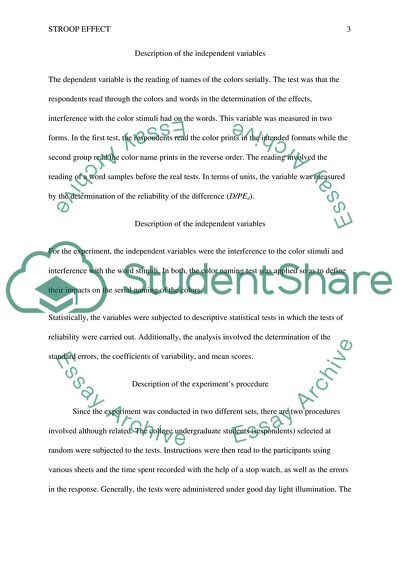Cite this document
(Stroop Effect - Effect Which Would Practice in Reacting to the Color S Research Paper, n.d.)
Stroop Effect - Effect Which Would Practice in Reacting to the Color S Research Paper. https://studentshare.org/psychology/1809288-stroop-effect
Stroop Effect - Effect Which Would Practice in Reacting to the Color S Research Paper. https://studentshare.org/psychology/1809288-stroop-effect
(Stroop Effect - Effect Which Would Practice in Reacting to the Color S Research Paper)
Stroop Effect - Effect Which Would Practice in Reacting to the Color S Research Paper. https://studentshare.org/psychology/1809288-stroop-effect.
Stroop Effect - Effect Which Would Practice in Reacting to the Color S Research Paper. https://studentshare.org/psychology/1809288-stroop-effect.
“Stroop Effect - Effect Which Would Practice in Reacting to the Color S Research Paper”. https://studentshare.org/psychology/1809288-stroop-effect.


